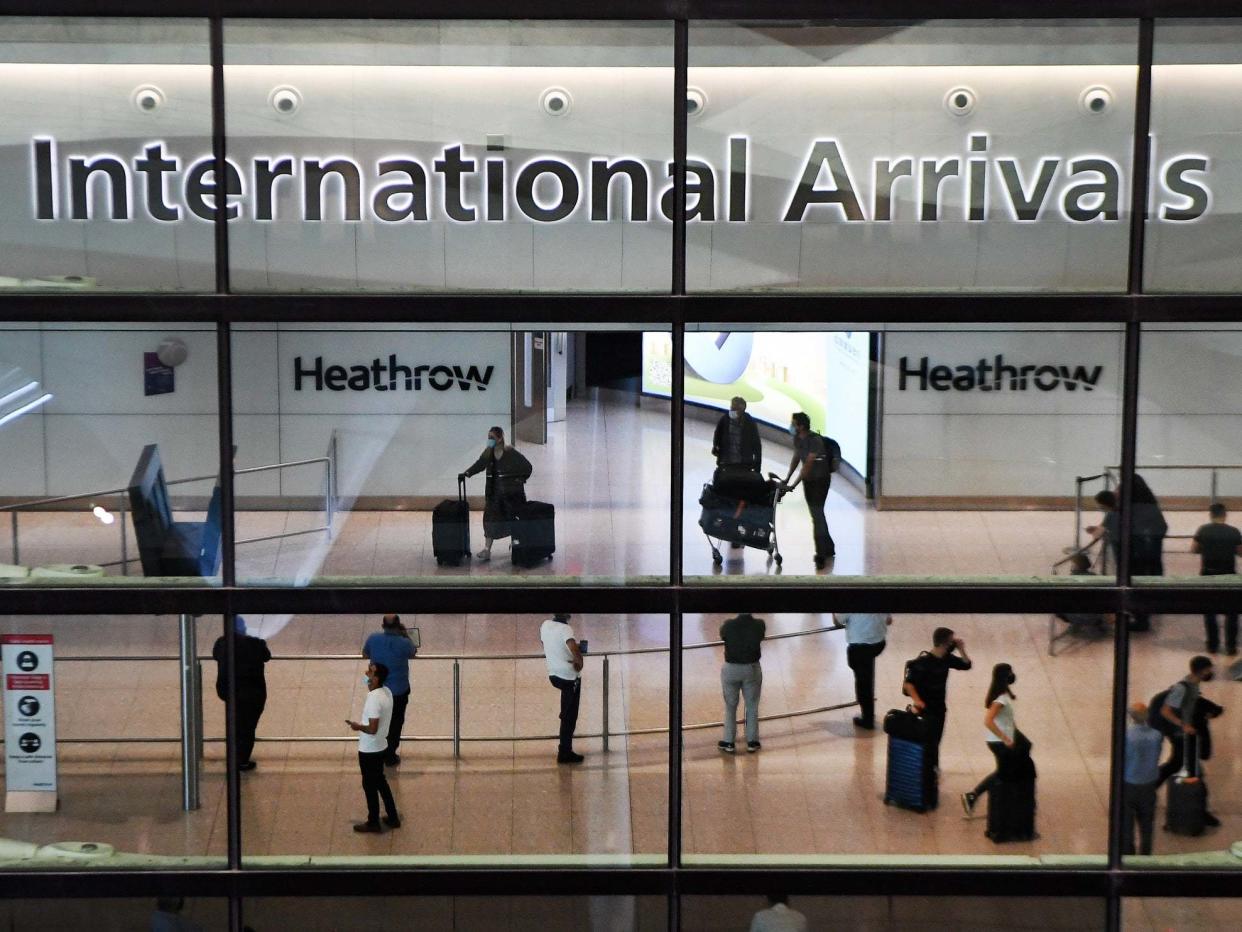Coronavirus: Boris Johnson urged to help out travellers stuck in quarantine

The prime minister has been urged to provide compensation for travellers who have been put into the difficult situation of having to quarantine for 14 days when they return from their holiday abroad, amid concerns that France may be added to the quarantine list.
People who are already on holiday in a country that has abruptly been added to the travel quarantine list should be given statutory sick pay for the isolation period, a cross-party group of MPs, scientists and trade unions have said.
It comes after Belgium, Andorra and the Bahamas were added to the quarantine list, joining Spain and Luxembourg. All announcements of countries being added to the list were made within just hours before the quarantine rules became effective, giving travellers little time to prepare.
Former Tory cabinet minister David Davis said: “If the government changes the rules while you’re away, and it costs you two weeks’ work, then it’s the government’s responsibility.
“Truth be told, if they don’t do it voluntarily, a smart trade union will take them to court anyway.”
Nick Thomas-Symonds, shadow home secretary, said: “Following the mass confusion around the decision on Spain, there should now be plans in place to support people coming home where there is no guarantee their employers will allow them 14 days of work flexibility.”
Ed Davey, acting leader of the Liberal Democrats, said the government must “make sure people have the financial means” to quarantine.
He added: “Rishi Sunak should not be leaving people in a position where they’re choosing between quarantining or putting food on the table. The chancellor must step in and grant sick pay for all those returning from a country where the rule has changed while they were there.”
Spain was the first country to make the list in late July, prompting fury from the travel industry, which said the sudden decision was “simply frustrating and unmanageable”.
Following the announcement on Spain, Foreign Secretary Dominic Raab told Sky News’ Sophy Ridge on Sunday programme that employers should show flexibility and said people “cannot be penalised in this country lawfully for following the rules”.
But fears that employers may not be so understanding persist. Frances O’Grady, general secretary of the TUC, said: “No one should suffer financially for following official advice to quarantine. It’s not holidaymakers’ fault if guidance changes.
“Wherever possible, employers should do the right thing and pay quarantined workers their full pay, but we also need the government to step up.”
Scientists have also weighed in, warning that people may be “tempted” to continue going to work without self-isolating after returning from holiday “just to make ends meet”.
Paul Hunter, professor in medicine at East Anglia University, said: “I think that if you are actually forcing people to stay off work for two weeks, then they should at least get sick pay.”
Rising coronavirus infections in France means the country may be next to be added to the quarantine list.
On Friday, the French government said it recorded 2,288 new Covid-19 cases, a 43 per cent increase from Thursday’s daily total. The country’s owns scientific committee warned earlier this week there was evidence of a second surge in cases and warned the “situation is precarious”.
The UK government said it “will not hesitate” to add more countries to the quarantine list if it saw fit to do so, with Mr Sunak warning there “is always a risk of disruption to travel plans” as the pandemic continues.
A spokesperson for the Treasury said: “We’re dealing with a global pandemic and that does mean that there is a risk that travel can be disrupted. We keep quarantine rules under constant review.
“Anyone planning to travel should consider these risks. We urge employers to show flexibility where possible to employees who will have to self-isolate due to quarantine rules.”

 Yahoo News
Yahoo News 
